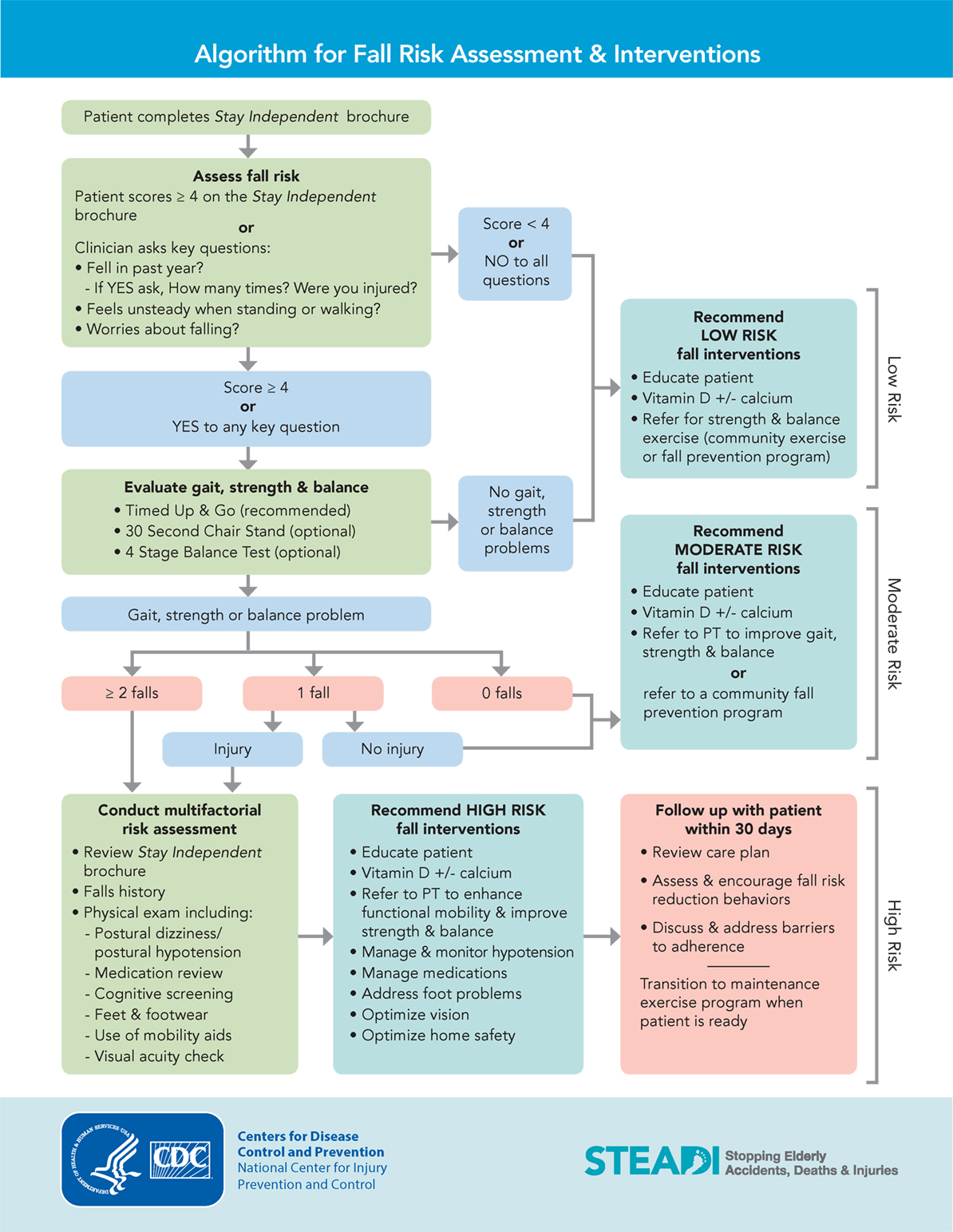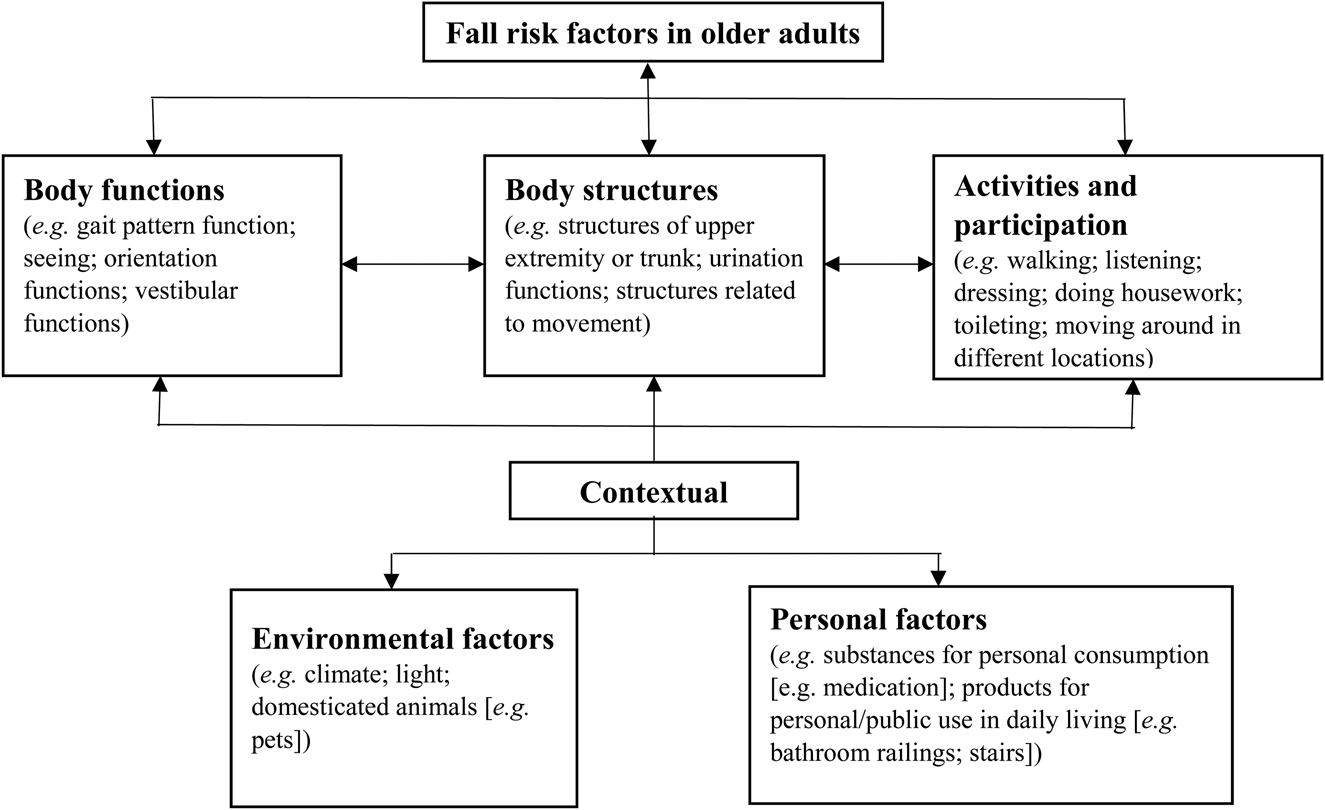The Main Principles Of Dementia Fall Risk
The Main Principles Of Dementia Fall Risk
Blog Article
Things about Dementia Fall Risk
Table of ContentsAll About Dementia Fall RiskThe smart Trick of Dementia Fall Risk That Nobody is DiscussingDementia Fall Risk for DummiesThe Definitive Guide to Dementia Fall RiskThe Basic Principles Of Dementia Fall Risk
Examining fall threat aids the entire health care team establish a safer setting for each person. Guarantee that there is an assigned area in your clinical charting system where team can document/reference scores and record pertinent notes associated with drop avoidance. The Johns Hopkins Loss Threat Evaluation Device is among many tools your staff can make use of to help prevent adverse clinical occasions.Patient drops in hospitals are common and devastating unfavorable occasions that continue regardless of years of effort to reduce them. Improving interaction across the examining registered nurse, treatment group, client, and patient's most entailed family and friends might enhance fall prevention initiatives. A team at Brigham and Female's Medical facility in Boston, Massachusetts, looked for to establish a standard autumn avoidance program that focused around improved interaction and patient and household engagement.

The development team emphasized that effective application depends upon individual and personnel buy-in, integration of the program right into existing process, and fidelity to program procedures. The group noted that they are grappling with exactly how to make sure continuity in program implementation throughout durations of dilemma. Throughout the COVID-19 pandemic, for instance, a boost in inpatient falls was connected with limitations in patient interaction along with constraints on visitation.
Dementia Fall Risk for Beginners
These occurrences are typically taken into consideration preventable. To carry out the treatment, organizations require the following: Access to Autumn TIPS resources Loss ideas training and retraining for nursing and non-nursing staff, consisting of brand-new registered nurses Nursing process that permit for patient and household interaction to perform the falls evaluation, ensure use of the avoidance strategy, and conduct patient-level audits.
The outcomes can be highly destructive, usually accelerating individual decrease and causing longer health center keeps. One study approximated keeps increased an added 12 in-patient days after a person loss. The Autumn TIPS Program is based upon appealing individuals and their family/loved ones across 3 major processes: evaluation, personalized preventative treatments, and bookkeeping to ensure that individuals are involved in the three-step loss avoidance procedure.
The patient analysis is based on the Morse Fall Scale, which is a verified autumn danger analysis device for in-patient hospital settings. The scale consists of the 6 most usual factors patients in hospitals fall: the client loss background, risky problems (including polypharmacy), use of IVs and other external gadgets, psychological condition, gait, and wheelchair.
Each danger aspect relate to one or even more actionable evidence-based interventions. The nurse creates a plan that incorporates the interventions and is visible to the treatment group, individual, and household on a laminated poster or printed visual aid. Nurses create the strategy while meeting the person and the individual's household.
The 9-Second Trick For Dementia Fall Risk
The poster functions as a communication tool with browse around these guys various other members of the person's treatment team. Dementia Fall Risk. The audit part of the program includes assessing the individual's understanding of their threat aspects and prevention strategy at the unit and hospital levels. Registered nurse champions conduct a minimum of 5 specific meetings a month with patients and their families to check for understanding of the fall avoidance plan

An approximated 30% of these drops cause injuries, which can range in intensity. Unlike other unfavorable occasions that need a standardized medical feedback, autumn prevention depends very on the requirements of the client. Consisting of the input of individuals who know the client ideal permits better personalization. This method has actually verified to be more effective than fall avoidance programs that are based mainly on the manufacturing of a threat score and/or are not adjustable.
A Biased View of Dementia Fall Risk

Based upon auditing read review outcomes, one site had 86% compliance and 2 sites had more than 95% compliance. A cost-benefit analysis of the Loss TIPS program in eight hospitals approximated that the program cost $0.88 per patient to apply and led to savings of $8,500 per 1000 patient-days in straight costs connected to the prevention of 567 tips over three years and 8 months.
According to the technology group, organizations thinking about executing the program must perform a preparedness evaluation and falls avoidance voids evaluation. 8 In addition, organizations must make sure the needed framework and process for execution and more establish an execution strategy. If one exists, the company's Loss Prevention Job Force must be involved in planning.
The Best Guide To Dementia Fall Risk
To begin, organizations should guarantee completion of training components by registered nurses and nursing aides - Dementia Fall Risk. Hospital staff need to analyze, based upon the demands of a health center, whether to utilize a digital health and wellness document hard copy or paper version of the loss avoidance plan. Executing teams ought to hire and educate nurse champions and establish processes for auditing and coverage on fall information
Staff need to be associated with the process of redesigning the operations to involve patients and family in the evaluation and prevention plan process. Systems ought to be in place to ensure that units can understand why a fall occurred and remediate the reason. Much more particularly, nurses should have networks to supply ongoing feedback to both staff and device management so they can change and boost autumn prevention workflows and communicate systemic troubles.
Report this page